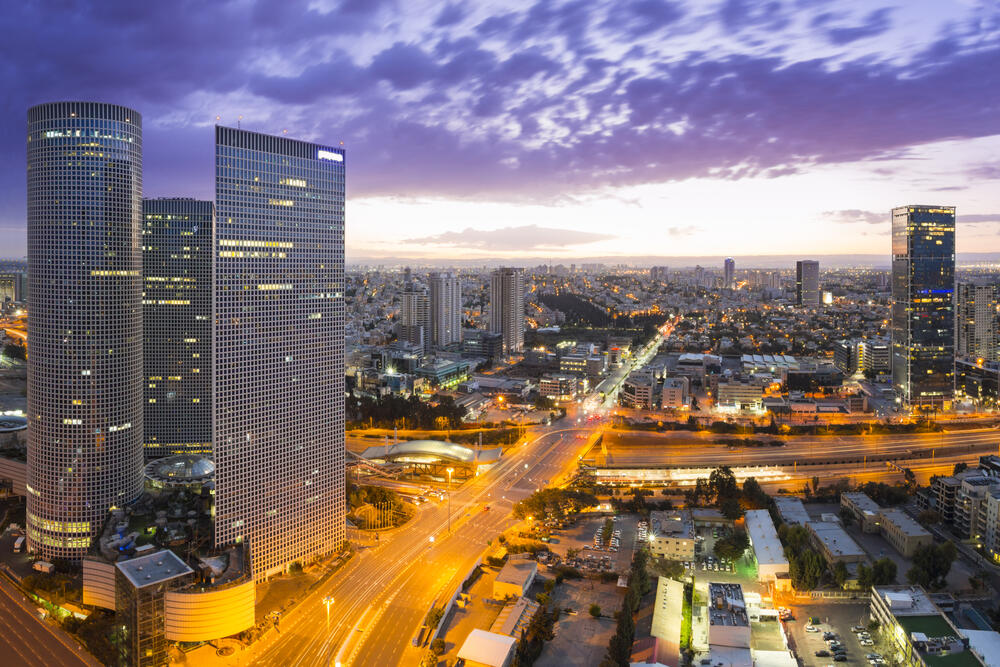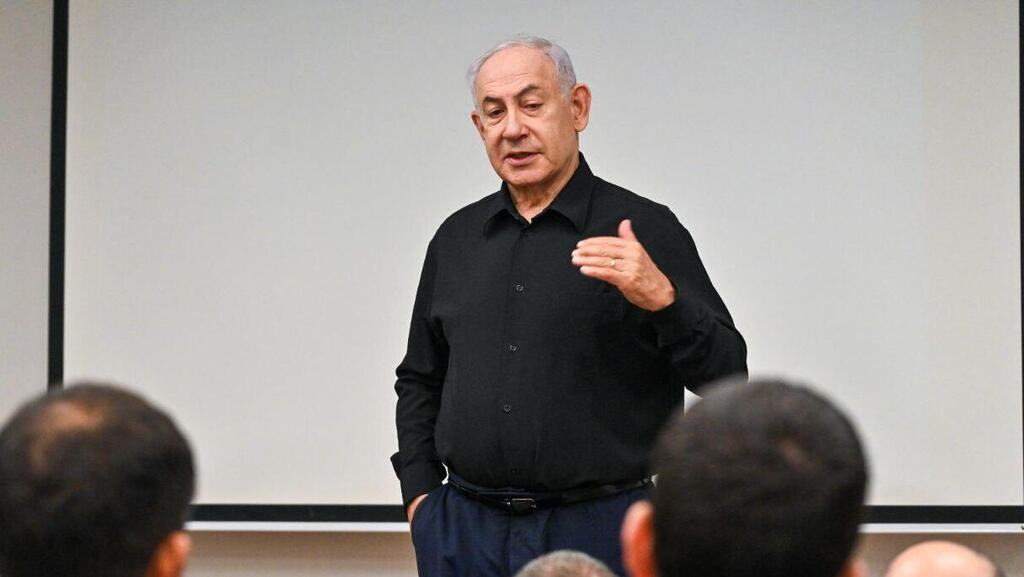We are in “an existential fight for our existence and future," repeat our leaders. It’s a message that resonates strongly with the Israeli public. Overnight we have become acutely aware of our own mortality. Collectively, the country is finally on the same page. At least for the most part.
Read more:
A majority of our citizens have been mobilized for the war effort. Many into the defense forces, others the paramedics. There are a multitude of essential volunteer roles being filled in record time.
For some citizens, a national mobilization means weaponizing their keyboard and TikTok accounts to join the social info wars.
And then there are the founders, the innovators and the business leaders. For this section of the population, they are taking the fight to the enemy through sheer defiance.
Winning the war, from their perspective, is achieving total success in their ventures. Victory, manifested by growth, the most quantifiable indication of enemy defeat.
It’s easier said than done. It takes more than projecting a “business as usual” front. During peacetime, when things don’t go to plan, businesses issue statements of assurance to stakeholders and reassure their staff. The brave old "it’s business as usual" is used to mask the difficulties.
But we are not in peacetime, we are a country at war. And these are not regular business times.
Israeli CEOs of companies with a global presence and household brands, shoulder a far greater responsibility than they did only three weeks ago. They now have a much bigger group of stakeholders to consider. Their country needs them. For them, business is not as usual.
They are dealing with a significant percentage of their workforce absent from their desks, as employees dust off their old army uniforms, and leave to join the front line.
They are faced with traumatized workers directly impacted by the terror atrocities, some with friends and family among the victims and hostages.
They are also sensitive to the general anxiety shared around the office, for the safety of those they know serving in the IDF.
And yet, despite the palpable pain felt in the hallways and elevators, something remarkable is taking place inside the high-rise office buildings of Tel Aviv, Ramat-Gan and Herzliya.
I have spoken with CEOs this past week who tell of unprecedented determination demonstrated by their employees to secure the future of the company that hires them. Hi-tech teams have always been very personally invested in the macro vision of their employers, but since Oct. 7, this has been 10X.
Motivated to maintain growth, they are picking up the pace and willingly undertake the extra workload left by their absent colleagues. Adamant to maintain momentum, it’s all hands on deck to make sure that deadlines are being met. Determined, they keep their vacant colleagues' computers running and maintain the security of their jobs until they return.
For tiny Israel, under attack from all sides, labor in the hi-tech sector is becoming a call of nationalistic duty. Ensuring the successes of the company they work for is viewed as a tactically offensive wartime maneuver. A critical vertical in a multi-pronged offensive, alongside (and no less important than) the military itself. They are redefining what we thought we already knew about Israeli resilience.
And for the most part, it’s paying off. Global partners and accounts are maintaining confidence for now. That is not to say that the hi-tech landscape is exclusively stories of devoted commitment and success forged under fire. There is a different reality affecting some smaller startups.
Every day, much personal sacrifice is made. Some aspiring entrepreneurs are putting their startups and dreams on hold or shutting them all together. There are stories of founding teams simply unable to survive one of their ranks being called away for active duty. Other stories being shared are of investor term sheets, months into negotiations suddenly and agonizingly pulled off the table.
I am starting to finally put the dots together. Simply put, a strong economy is the number one determiner of our security (besides God himself). A robust hi-tech industry, Israel’s dominant export, is therefore a vital supply line to our defense forces.
Conversely, without a strong economy, there is no defense force and no country (heaven forbid it). Prime Minister Benjamin Netanyahu has repeatedly stated when interviewed in business forums throughout the years, that the roadmap to Israel’s security starts with the strength of its free market economy. Today this is the reiterated theme of every press conference aired on TV and what I began with; we are in an existential war.
When Israel came under attack three weeks ago by the inhumane and brutal terrorist group, Hamas, the animals perpetrating the massacres intentionally documented their atrocities with the intention of breaking down our will to stay and fight. They also calculated that Israel’s thriving workforce would take a double hit. First, they aimed to stall business operations by reducing the number of active personnel working in the offices which they followed with campaigns to inflict psychological warfare on those who remain.
Collectively, they hoped to destroy any effective economic output. Make no mistake, Hamas’ pogrom assault had our economy in its sights.
But unlike the temporary success of their cowardly, ISIS-Nazi-playbook attack on unarmed women, children and elderly, when it came to breaking the morale of the Israeli workforce, they have failed spectacularly.
One of my favorite movies, directed by Curtis Hanson and based on Andrew Ross Sorkin's 2009 non-fiction book of the same name, documents the 2008 global financial crash from the harried and panicked perspective of the major U.S. banks.
The movie dramatizes the story through the eyes of the U.S. treasury secretary at the time, Henry Paulson. We all remember how the story eventually ends with the FED bailing out the bigger banks and the full force of the economic crash, but what always strikes me most when rewatching the film, besides the greed and criminal activity of the banks, is the breathtaking carelessness in which the warning signs were ignored by the heads of the largest financial institutions in the world.
Financial commentators have a consensus opinion that essentially accuses the banks of acting that way precisely because they knew the Federal Government Reserve would bail them out if it ever came to it. The movie is called “Too Big To Fail”.
Jewish people have an inbuilt distrust of anyone else coming to "bail them out." If our banks and financial institutions acted in the same irresponsible way and risked collapsing the economy, we would not be here tomorrow.
Today, it is not irresponsible business practices that are threatening our economy, war is. But, the high stakes remain the same.
I shared this analogy with a couple of venture capitalist investors who have large equity holdings in Israeli hi-tech startups. I put to them my thinking and logic behind doubling down on their investment interests and seeking new opportunities in Israel, especially now. Now, so we won’t need a painful "bailout" later. Now, when our resolute determination for success is threatening to burst through the top of the proverbial barometer. Now, when we are unified and most effective. They got it!
To quote Michael Eisenberg’s recent X post addressing the Israeli hi-tech sector, “It can innovate in a way and pace that most people cannot, especially under stress. The individual and individualist wilts under stress. The collaborative and coherent collective becomes resilient.”
 Moshe David Rubinstein
Moshe David Rubinstein In the next part of this series I have titled “Hi-Tech at War", I will be sharing interviews with the CEOs of Israel’s biggest and best hi-tech companies. I will share their outlook, motivations and forecasts. I will relay what I have learned about the culture, and I will tell the story of their employees’ courage and resolve.
No terrorist can slaughter and butcher their way to stopping the force for good which is our hi-tech sector. Hamas doesn’t hold weaponry capable of that. Those weapons don’t exist.
As sure as light will always illuminate the dark, Israelis will always build companies to benefit good in the world.
Unlike the FED in 2008, alone tasked with saving the U.S. economy, every CEO in Israel is an acting Henry Paulson, operating under one undeniable truth; Israeli hi-tech is Too Big to Fail!








